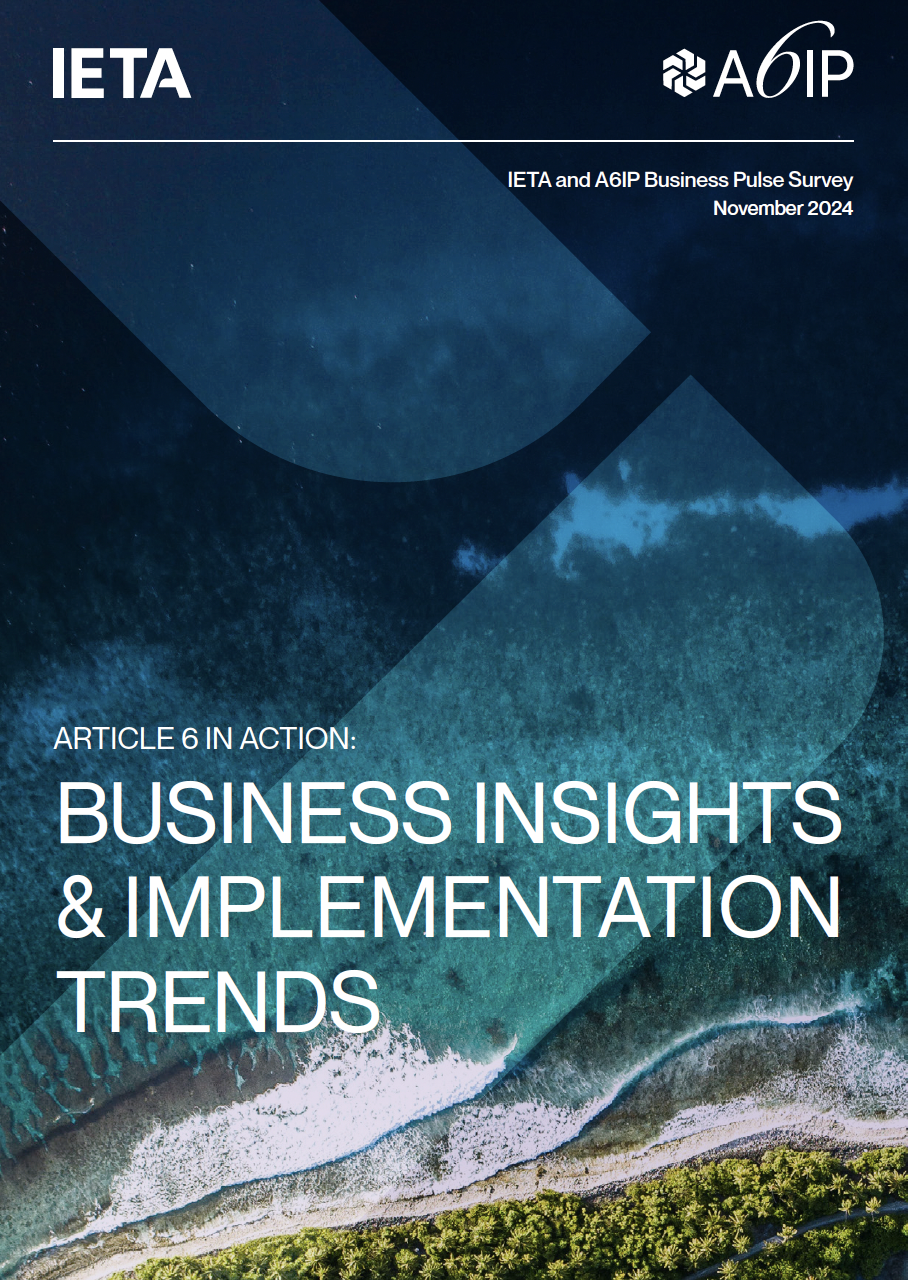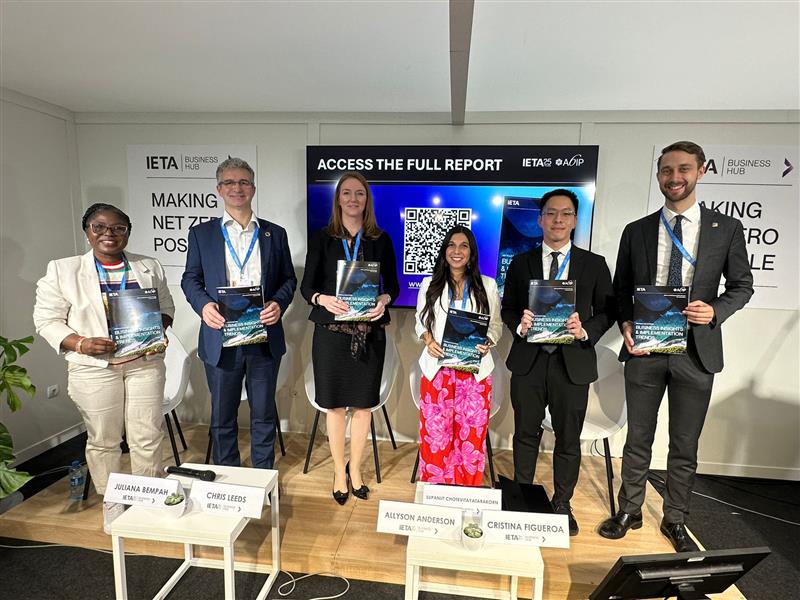IETA AND A6IP REPORT REVEALS KEY INSIGHTS ON ARTICLE 6 IMPLEMENTATION

13.11.24|Press Releases
- IETA and the Article 6 Implementation Partnership (A6IP) launch first-ever business pulse survey to understand corporate views on Article 6 implementation.
- 83% of respondents indicated that they would be willing to pay higher or even much higher than average market rates for correspondingly adjusted ITMOs, as well as for non-adjusted 6.4 Mitigation Contribution Units (MCUs).
- Companies see major opportunities in participating in both Article 6.2 and 6.4 markets; however, concluding outstanding Article 6 negotiations at COP29 in Baku is critical.
IETA, the leading business voice for carbon markets, has joined forces with the Article 6 Implementation Partnership (A6IP) to release a new report based on the organisations’ first-ever global Article 6 Business Pulse Survey – Unlocking Article 6 Potential: Trends, Opportunities and Hurdles.
Informed by more than 100 responses from around the globe, the results clearly outline the strong private sector interest in Article 6 mechanisms driven by opportunities for new revenue streams, enhanced reputation, and risk mitigation – but also the associated challenges.
The report delves into the cooperative approaches and mechanisms available through international carbon markets, whilst understanding the current barriers faced. The 100+ responses represent diverse market views, with 47% of respondents from small companies (less than 50 employees) and 27% representing large companies with over 1,000 employees. Project developers made up 56% of responses, and 35% of those completing the survey indicated that they have operations or clientele worldwide.

Launch of the IETA-A6IP Report (L to R): Juliana Bempah, Principal Programme Officer, Environmental Protection Agency, Ghana; Chris Leeds, Head of Carbon Markets Development, Standard Chartered; Allyson Anderson, Chief Sustainability Officer, Baker Hughes; Cristina Figueroa, Climate Negotiation Specialist, Ministry of Environment, Chile; Supanut Chotevitayatarakorn, Program Manager, Article 6 Implementation Partnership (A6IP); and Björn Fondén, International Policy Advisor, IETA.
Almost all respondents highlighted that their company was already active in the voluntary carbon market (87%), and around half of the respondents explained that they were also active in compliance markets (ETS), CORSIA and/or carbon tax-and-offset schemes. 48% are already actively participating in Article 6 transactions and projects, whilst 36% were exploring potential engagement.
Andrea Bonzanni, IETA International Policy Director, said: “For the first time, this report has showcased companies’ willingness to pay significant premiums for correspondingly adjusted ITMOs and Article 6.4 MCUs as compared to other carbon credits.” The report found 83% of respondents willing to pay somewhat higher, or much higher prices for ITMOs compared to other credits.
Additional questions addressed within the survey include co-benefits and alignment with the UN Sustainable Development Goals (SDGs), how and whether REDD+ activities should be treated as part of Article 6, the Paris Agreement Crediting Mechanism (PACM), and the primary challenges companies face in participating in Article 6 mechanisms.
Whilst these results only provide an initial indication of the many promises and challenges facing private sector engagement in Article 6 markets, IETA hopes to continue building on these outcomes to shape further activities. As the complex Article 6 landscape continues to evolve, IETA and A6IP remain committed to help resolve outstanding challenges and scale up the international carbon market.
The full report is available on IETA’s website here.
Daily updates from COP29 will be available on IETA’s website here.
Media Contact
More News
View all News-

IETA calls for clarity on role of credits in EU corporate environmental claims rules
18.03.25
Read more
-
IETA’s recommendations for the implementation of the EU Carbon Removals Carbon Farming Regulation
06.02.25
Read more
-

New PACM Position Paper: Ownership of A6.4ERs in the Paris Agreement Crediting Mechanism Registry
24.01.25
Read more
